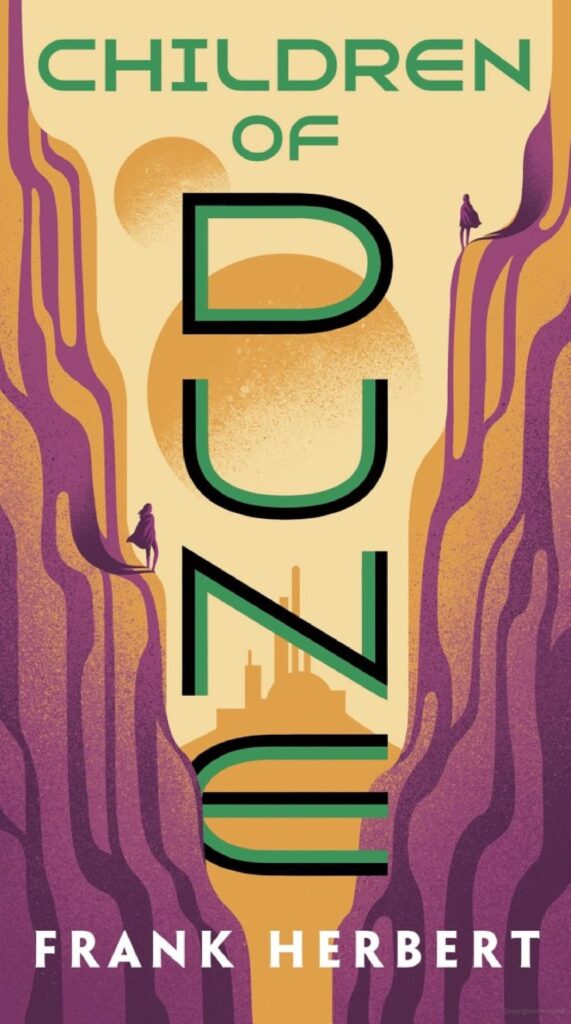Children of Dune takes Frank Herbert’s series to another level. As Messiah provides a meaningful conclusion to Paul Muad’Dib’s journey, Children of Dune completely upends the galactic ramifications of his final decisions. It is his children, Leto II and Ghanima Atreides, groomed to be the next messiahs, who will dictate the next course for humanity. Born with the same full awareness of their past lives as their aunt regent, Alia, these twins find themselves faced with a terrifying and grave vision, one they identify as humanity’s Golden Path. This path, spanning thousands of years will require an intensive management of all the possible threads and the players. But those looking after them may have competing intentions.
Dune, or Arrakis, is undergoing the ecological transformation, turning the harsh desert planet into a lush, green water-filled world. The transformation has succeeded to the extent that it is now common for Fremen to live without stillsuits, and to have moved from the sietches to the more civilized cities and villages. With these new realities, old ways start to decay, and the lost traditions start to worry and make resentful the superstitious Fremen. This is particularly true in the case of the old naib Stilgar, who had watched the rise and fall of his friend and leader Paul Muad’Dib, only to become jaded and disillusioned with the power of prophets and imperial politics and their dictations on human affairs and beliefs. Stilgar sees the child twins as a great threat, despite some love he may share for them,while Alia, succumbed to abomination, possessed by the evil Baron Harkonnen, sees them as valuable tools and hostages.

As those closest to Alia recognize her possession, one of the Bene Gesserit’s greatest fears now realized, they begin to abandon her, even her mother the Lady Jessica. Civil war begins to rack the planet and threaten the progress of the ecological transformation as a mysterious preacher, who many think to be Paul Atreides himself, has aroused rogues and renegades against the injustices of the imperial regency, sending ripples across the stars, echoing all the way to Salusa Secundus, seat of House Corrino. The worms, and therefore the spice, are threatened; the source is being depleted and the Harkonnen-possessed Alia is deviously aware. As are the twins.
As the fallen House Corrino plots the Atreides’ demise, the young Prince Farad’n finds little to be desired in familial revenge. His own place in history, in the Golden Path, is soon realized; a product of schemes, prescience, and his times.
A new era is upon the imperium, a new golden age of both peace and stagnation. This will require a great planner, willing to sacrifice his or her own humanity. This Golden Path was too much, even for the wise Paul Maud’Dib.
Herbert cleverly portrays the nuances of what is to be wholly considered if one were trying to manage all of civilization and a course that would stretch many many lifetimes and cultures. The unknowns can never be known, but perhaps the patterns can be identified, allowing humanity to better prepare for the chaotic future ahead. He also portrays this phenomenon of ancient minds and experiences being trapped in child bodies, and how that affects their current life’s understanding in a very thought-provoking way.
The opening historical quotes at the start of each chapter continue to enhance your understanding of the world and allow the reader to come back and read them with more or different contexts. I find myself completely immersed in these events and cannot wait to see what’s in store with the next entry, God Emperor of Dune.

